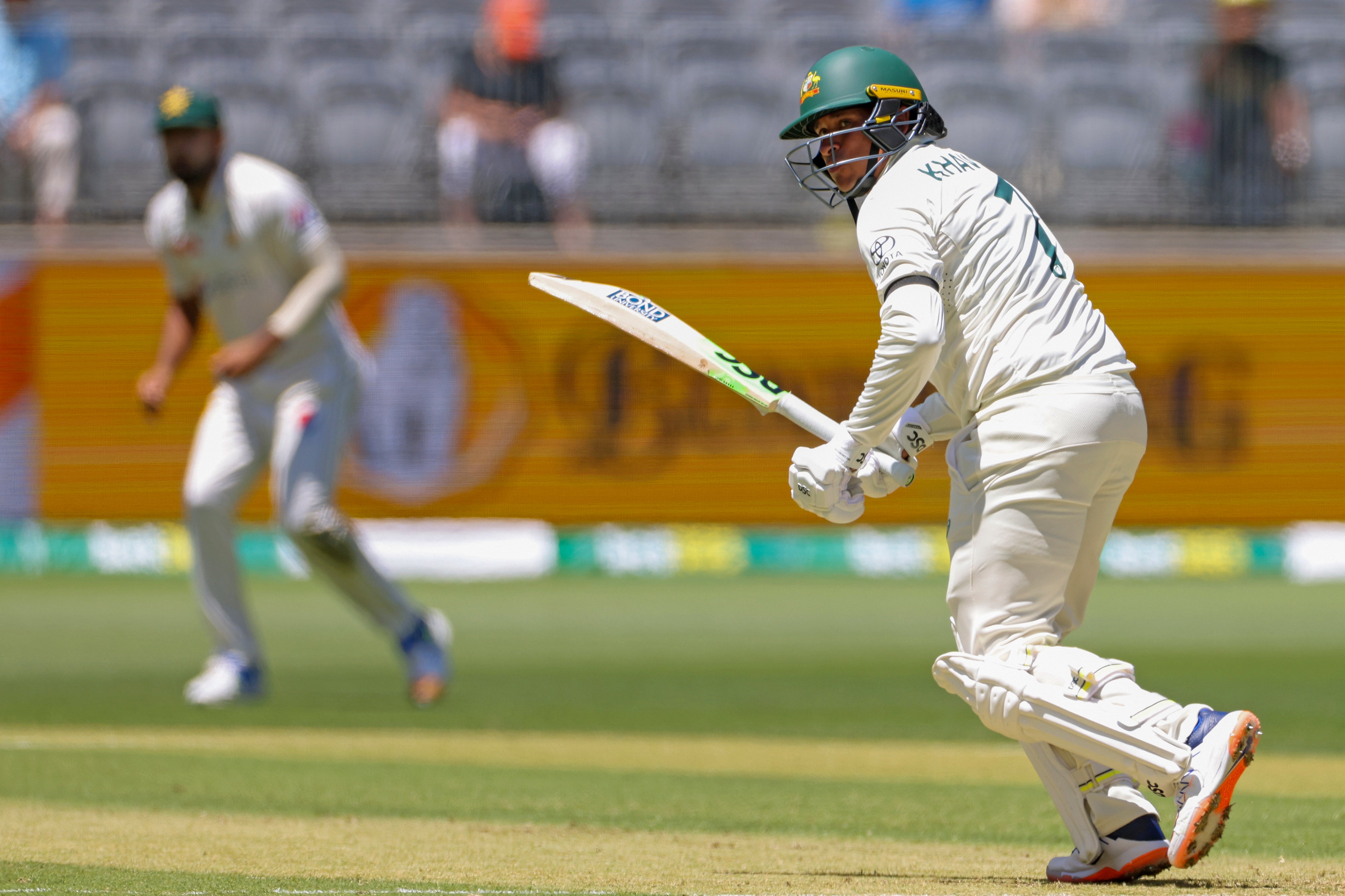Australia cricketer Khawaja wears a black armband after a ban on his 'all lives are equal' shoes
Australia batter Usman Khawaja has worn a black armband because he wasn’t allowed to wear shoes branded with a “all lives are equal” humanitarian message on Day 1 of the series-opening cricket test against Pakistan

Australia batter Usman Khawaja wasn’t allowed to wear shoes branded with his “all lives are equal” humanitarian message, so he wore a black arm band instead Thursday on Day 1 of the series-opening cricket test against Pakistan.
The International Cricket Council intervened on Wednesday after Khawaja indicated he planned to wear shoes during the match that featured messages to highlight the loss of innocent lives in the Israel-Hamas war.
The ICC’s policies for international cricket prohibit displays of political or religious statements on team uniforms or equipment.
Khawaja said he'd abide by the ruling to avoid individual or team sanctions, but would challenge the ICC's stance.
“ Freedom is a human right, and all rights are equal,” Khawaja said in a social media post. “I will never stop believing that.”
Australia batted first in the five-day match, and Khawaja and fellow Australian opener David Warner strode to the pitch along with the Pakistan fielders.
Khawaja, who was born in Pakistan and is the first Muslim to play test cricket for Australia, wore the black armband to show solidary with people suffering in Gaza.
He said what he'd written on his shoes wasn't political and he wasn't aiming to be divisive.
“I'm not taking sides. Human life to me in equal," Khawaja posted in a video on X, formerly known as Twitter. “I'm just speaking up for those who don't have a voice. This is close to my heart.”
He scored 41 runs in a 126-run opening partnership with Warner before he was caught behind from the bowling of Shaheen Shah Afridi in the 30th over and had to leave the field.
In earlier pre-game TV interviews, he said there'd been precedents where cricketers had been allowed to show support for other causes.
“I find it a little bit disappointing they came down hard on me and they don’t always come down hard on everyone," Khawaja said.
The 36-year-old batter had some high-level support, including from Australia's cricket captain Pat Cummins and even up to the nation's federal treasurer, Jim Chalmers.
“What was on the shoes — all lives are equal — I support that,” Cummins said. “That’s not very divisive. I don’t think anyone can really have too many complaints about that.”
Chalmers told the Australian Broadcasting Corp. radio that the ICC should allow Khawaja to wear the shoes.
“I don’t think it’s an especially controversial statement and I find it unusual frankly that people want to dispute that," he said. "The lives on one side of a conflict are not worth anymore or any less than the lives on the other side of a conflict.”
The Israel-Hamas war has resulted in the deaths of over 18,400 Palestinians, according to the Health Ministry in the Hamas-controlled territory, which does not differentiate between civilian and combatant deaths. Israel says 113 of its soldiers have died in its ground offensive after Hamas raided southern Israel on Oct. 7, killing about 1,200 people, mostly civilians, and taking about 240 hostages.
___
AP cricket: https://apnews.com/hub/cricket